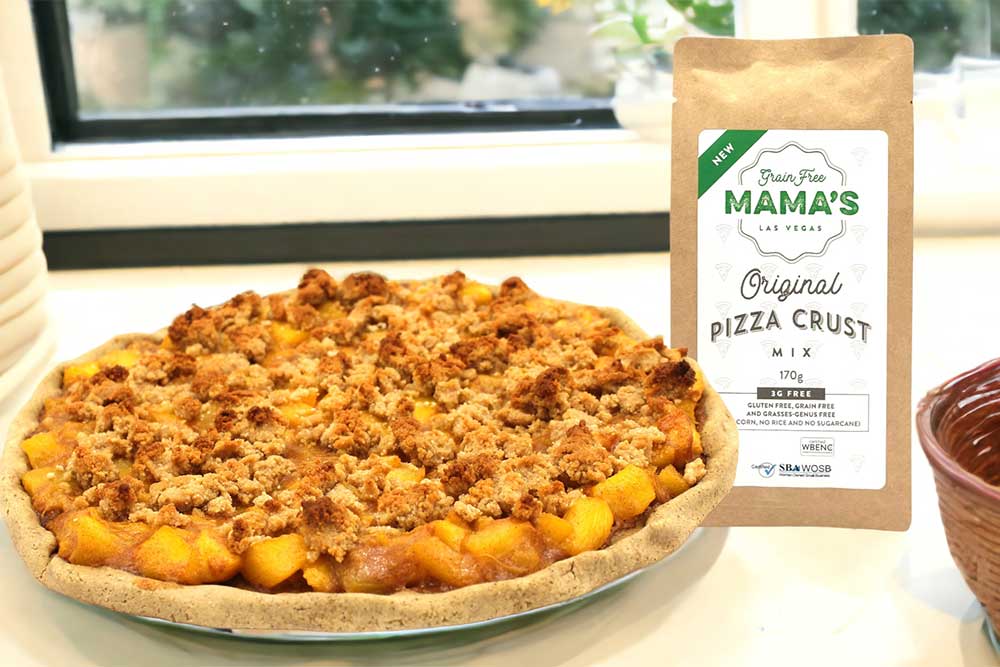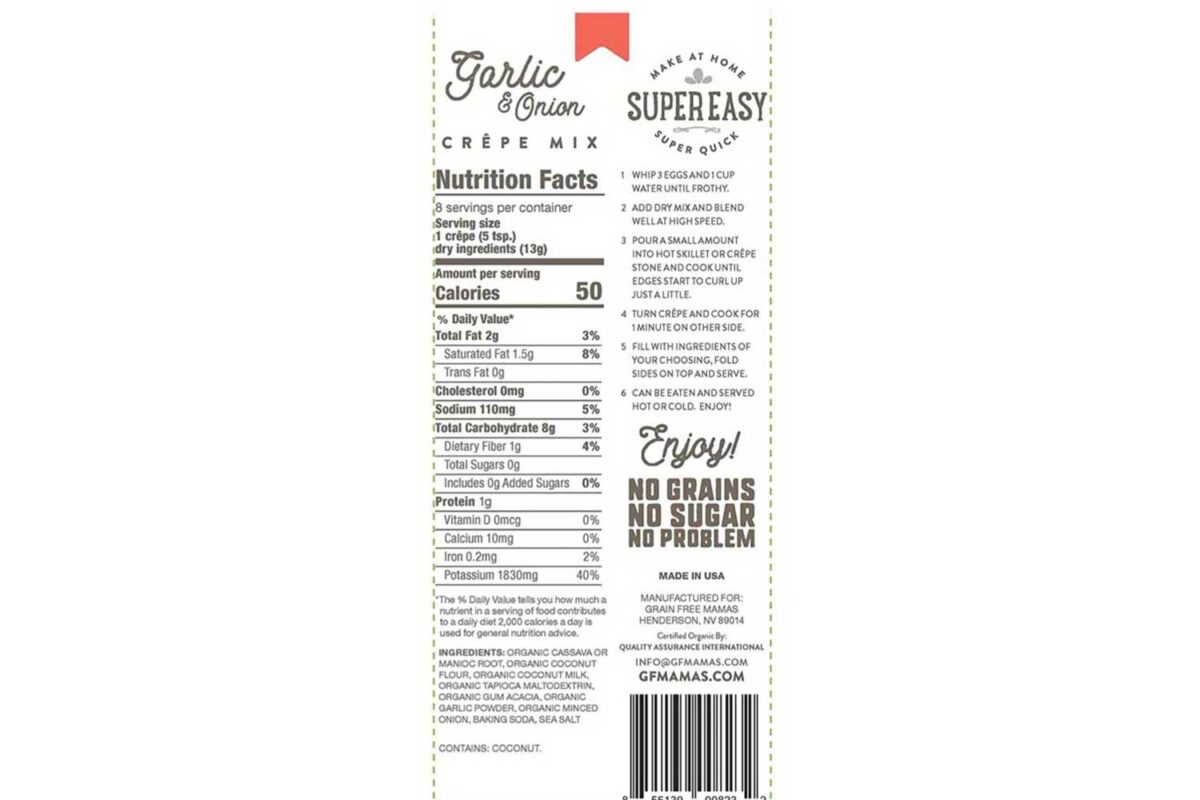Exploring the Connection Between Autoimmune Issues and Food Ingredients

Did you know there is a direct connection between the modern diet and the development of autoimmune disease? That may come as a surprise for many folks, as the beloved baked goods and processed foods are a taboo health topic for many…until they find themselves in the doctor’s office with a sobering diagnosis: autoimmune disease. I first encountered the possibility of autoimmune disease when my now 25-year-old daughter was 6. This was back in 2004, when the term Irritable Bowel Syndrome was yet to be mainstream knowledge. We found out that for her, the combination of wheat and sugar was producing a toxic combination that was burning little holes in her intestines! That fueled my passion for getting to the root of the problem, and eliminating it, before she developed any disease of any kind.
What I ultimately discovered is that the Edible Grasses (wheat, barley, rye, oat, millet, sorghum, teff, corn, rice, and cane sugar) were toxic to her, and to my digestive systems. Further, we have a grass allergy (hay fever, seasonal allergies), which I knew but had never linked to the foods we ate. 10-30% of the world is allergic to grasses, yet almost all baked goods and a lot of processed foods are made with grass ingredients. We made the choice to eliminate these ingredients and today are happy, healthy and disease free. For me personally, my seasonal allergies are super mild now that I eliminated eating the grasses. A big win for me!
Addressing the complex relationship between diet, specifically the inclusion of the Edible Grasses (gluten and non-gluten grains and flours, corn, rice, and cane sugar) and chemically derived and isolate ingredients, and the rise in autoimmune diseases is a fascinating and crucial topic. Here, we’ll explore how shifts in dietary habits towards processed foods have contributed to the prevalence of digestive issues and autoimmune conditions. This exploration combines historical dietary changes, the impact of processed foods on gut health, and strategies towards a healthier lifestyle that aligns with a diet rich natural, nutrient-dense foods.
Historical Dietary Shifts and Their Impact
The transition from a diet rich in fresh, whole foods to one dominated by edible grass ingredients (grains and sugars) and processed foods marks a significant change in human nutrition. For thousands of years, human diets were based on hunting, foraging, and farming practices that emphasized seasonal and local foods. This changed dramatically with the agricultural revolution, and even more so with the industrial revolution, leading to the mass production of food, including the widespread availability of grains and refined sugars.
The introduction of grains and sugars into the daily diet has been linked to several health issues. These foods can cause spikes in blood sugar and may contribute to insulin resistance, a precursor to diabetes and other metabolic disorders. Additionally, grains, especially those containing gluten, have been identified as potential irritants to the digestive system, contributing to inflammatory responses in susceptible individuals.
“Consumption of high-glycemic index foods, sugar, and refined grains has been linked to increased inflammation and insulin resistance, contributing to the risk of autoimmune diseases.” (The American Journal of Clinical Nutrition, “Dietary sugars and body weight: systematic review and meta-analyses of randomized controlled trials and cohort studies“)

The Rise of Autoimmune Diseases
Autoimmune diseases occur when the body’s immune system mistakenly attacks healthy cells, believing them to be foreign invaders. The reasons behind the rise of these diseases are multifaceted, including genetic, environmental, and lifestyle factors. However, a growing body of evidence suggests a strong link between diet and the development of autoimmune conditions.
“Gluten, a major component of wheat and other cereal grains, has been implicated in a range of autoimmune conditions, suggesting a need for dietary modification as a potential intervention strategy.” (Gastroenterology, “Celiac disease and autoimmune-associated conditions“)
A diet high in grains, sugars, and processed foods contributes to a condition known as “leaky gut syndrome” or increased intestinal permeability. This condition allows particles of food, bacteria, and toxins to “leak” through the intestinal wall into the bloodstream, triggering an immune response. Over time, this constant state of alert by the immune system can lead to its malfunction, attacking the body’s own tissues.
“Dietary patterns rich in processed foods and low in fiber can detrimentally affect the gut microbiome, leading to increased intestinal permeability and systemic inflammation, a key factor in the pathogenesis of autoimmune diseases.” (Nature Reviews Gastroenterology & Hepatology, “The gut microbiome and inflammatory diseases: the role of microbiota in health and disease“)
Chemically Derived Ingredients and Their Role
The addition of chemically derived ingredients to processed foods has further exacerbated health issues. These ingredients, which include preservatives, artificial colors, flavors, and sweeteners, can disrupt the gut microbiome, the community of beneficial bacteria that plays a crucial role in digestion, immune function, and overall health. A disrupted microbiome is linked to an increased risk of autoimmune diseases, as it can lead to chronic inflammation and a weakened immune system.
“Accumulating evidence suggests that food additives can perturb gut homeostasis, thereby contributing to promote tissue-damaging inflammatory responses.
(National Library of Medicine, “Impact of Food Additives on Gut Homeostasis”)
“Food additives are compounds used in order to improve food palatability, texture, and shelf life. Despite a significant effort to assure safety of use, toxicological analysis of these substances, generally, rely on their direct toxicity to target organs (liver and kidney) or their genotoxic effects. Much less attention is paid to the effects of these compounds on cells of the immune system. This is of relevance given that metabolic dysregulation and obesity have a strong immune-mediated component.” (National Library of Medicine, “Effects of Food Additives on Immune Cells As Contributors to Body Weight Gain and Immune-Mediated Metabolic Dysregulation”)

Towards a Healthier Future
Given these challenges, moving towards a diet that emphasizes fresh, whole foods and minimizes grains, sugars, and chemically derived ingredients is crucial. Here are some strategies to consider:
- Focus on Whole Foods: Emphasize fruits, vegetables, lean proteins, and healthy fats. These foods are nutrient-dense and less likely to cause inflammation or disrupt the gut microbiome.
- Minimize Processed Foods: Limit the intake of foods that contain artificial additives and high levels of sugars and refined grains. These can contribute to leaky gut syndrome and other digestive issues.
- Support Gut Health: Incorporate fermented foods and those high in fiber to support a healthy gut microbiome. Probiotic and prebiotic foods can help maintain the balance of beneficial bacteria in the gut.
- Personalized Nutrition: Recognize that individual responses to foods vary. What works for one person may not work for another. Consideration of food sensitivities and personal health goals is essential in tailoring a diet that supports overall well-being. We have an online community, A Place At The Table, where you can find more information, classes, and make connections with others on this healthy journey. Support is crucial to success. Give yourself the gift of good health today. Join here.
- Make the switch from traditionally made baked goods to grain free, sugar-free baked goods: Grain Free Mama’s Crepe and Pizza Crust Mixes are a delicious, healthy alternative that are quick and easy to prepare.
“Prominently situated at the base of the food pyramid, grains are promoted as the fiber-rich foundation of a healthy diet. Yet, to the surprise of many people, there is a big problem with grains and legumes. Actually, there are four problems with grains and legumes!
If you have an autoimmune disease, you may already be aware of the fact that gluten, the protein in wheat that gives bread its sticky, doughy texture, is an inflammatory substance. However, wheat is not unique. Many of the plants that we consume contain similar proteins. These will also increase inflammation in your body and contribute to a leaky gut.
Most people benefit from avoiding foods such as grains, pseudo-grains, legumes, and nightshades.” (The Problem with Grains and Legumes, Amy Meyers, MD)
The alarming rise in autoimmune diseases in the context of dietary shifts underscores the importance of understanding the impact of our food choices on health. By returning to a diet that emphasizes fresh, whole foods and minimizes processed ingredients, we can support our body’s natural defenses and promote a healthier, more vibrant life.

Our work at Grain Free Mama’s, and our commitment to producing healthy baking mixes free from grains, sugars, and artificial ingredients, is a testament to the positive change possible in the food industry. It represents a crucial step towards empowering individuals to make dietary choices that support their health and well-being. For more information, be sure to visit our site.
By embracing the power of natural foods and minimizing our intake of processed foods, we can move towards a healthier future for all.

Written by Margie Traxler
Grain Free Mama’s is a FoodTech Consumer Product Goods company. We make gluten/grain/sugar free (Edible Grasses Free), dairy free and botanical nut free baking mixes that put the simple back into simply good for you. We also have educational resources to help you on your healthy eating journey. Margie, the Founder/CEO, received her B.S. in Biology from Portland State University. She has 22 years of experience as a successful Restaurant owner. She lives and operates her business in Henderson, Nevada.





